Type One Diabetes (T1D) is an auto-immune disorder that disproportionately affects children and young adults. The burden of diagnosis is immense, both financially and psychologically. The patients and their parents or primary care-givers are faced with a life-long disease that entails expensive treatment, scary complications and also social stigma. For a poor family, a T1D diagnosis can be doubly devastating because it immediately throws doubt over the future of a young life. While they come to grips with the treatment, they’re blindsided by the high cost of both medicines and consultations. The fact that both will be required for the remainder of the child’s life is daunting for a family of limited means. Often there are other expenses that loom alongside: education, the needs of other siblings and medical emergencies. Financial support at this stage is a huge relief because it allows the patient and their caregivers to focus on treatment and suspend the overwhelming worry for the future. In many cases, lack of financial support might even mean patchy treatment including irregular insulin injections or in the worst-case scenario none at all for the child which can often prove fatal after the unfortunate child. Especially in a country like India, where there is little social security and where medical care for ambulatory diseases is largely an out-of-pocket expense, lack of proper treatment would lead to accelerated complications and significantly lower life expectancy, not to mention physical stunting and a life that is often wasted.
It is in this context that charitable initiatives for Type One Diabetes function, enabling T1D children of underprivileged background to gain access to a level playing field to achieve their full potential as socio-economically productive members of society. In fact, T1D public health initiatives provide an exponential return on investment because not only in the child life and health protected but also the family is prevented from shipping into poverty. With this lens, the Hinduja Foundation is sponsoring more than 600 children across India through three centres in Mumbai, Chennai and Pune, to provide free consultations, insulin supplies and necessary investigations. Our partners in this program are Dr V Mohan’s Madras Diabetes Research Centre, Chennai; the Diabetes Centre at the KEM, Pune led by Dr Chittaranjan Yajnik; and the PD Hinduja Hospital, Mumbai where a team of endocrinologists led by Dr Phulrenu Chauhan, are working tirelessly to bring this vision to fruition.
 In addition, given that research on T1D in India is not widely available, it falls to philanthropic organisations to invest in data that can potentially save lives. Investing in research requires a long view and a steady hand at the wheel that can clearly define the mission and direct funds appropriately. A charitable trust or mission like ours is in a position to bring together a range of experts from the fields of medicine, public health and the technology sector to create a one-of-its-kind national database of T1D patients. Our multi-centric registry tracks longitudinal data of patients over time. To ensure consistency and comparability, this is done on a common proforma designed collaboratively by our partners. We also have additional team members placed at each of the centres, who are part of the project and undertake specific research work, such as identifying patients with less common variants of diabetes such as MODY or Neonatal Diabetes or doing verbal autopsies of patients in the catchment area in children who have unfortunately died. We envision that as this body of work matures, it will be accessible to scientists across the globe in the form of peer-reviewed literature.
In addition, given that research on T1D in India is not widely available, it falls to philanthropic organisations to invest in data that can potentially save lives. Investing in research requires a long view and a steady hand at the wheel that can clearly define the mission and direct funds appropriately. A charitable trust or mission like ours is in a position to bring together a range of experts from the fields of medicine, public health and the technology sector to create a one-of-its-kind national database of T1D patients. Our multi-centric registry tracks longitudinal data of patients over time. To ensure consistency and comparability, this is done on a common proforma designed collaboratively by our partners. We also have additional team members placed at each of the centres, who are part of the project and undertake specific research work, such as identifying patients with less common variants of diabetes such as MODY or Neonatal Diabetes or doing verbal autopsies of patients in the catchment area in children who have unfortunately died. We envision that as this body of work matures, it will be accessible to scientists across the globe in the form of peer-reviewed literature.
Finally, we have observed that when a philanthropic organisation of longstanding repute like Hinduja Foundation invests substantially and seriously in T1D, it sends a clear message that this is a cause that deserves attention. T1D is a life-threatening condition with serious implications for public health, yet there is little awareness about this disease and a lot of stigma attached to it. With the T1D Program, the Foundation sends a message of hope to patients and issues a clarion call for support from the wider community. And that’s been the seminal learning for us in the program– so many patient advocates and families have joined the movement once the Foundation sowed the kernel. Patients of T1D who have now achieved glory in their chosen careers have stepped up to share their stories with our children to motivate and encourage them. Families and friends have joined us to partner on initiatives such as a mobile app to help manage diabetes. Quite a few T1D patients have volunteered to be ‘diabuddies’ to recently diagnosed patients and help them with life-hacks, which are as important as insulin and glucometers to leading a full and fulfilling life. In many ways, the T1D community has catalyzed the program and furthered the cause much more than we could have ever imagined.
Last but not the least several of the beneficiaries the children with T1D and thier parents have come forward to publically acknowledge how their lives have been changed thanks to the T1DI project. To us at the Hinduja Foundation there is no greater reward that serve the happiness on the faces of these children and then families. This assure us that our efforts have been wroth while.




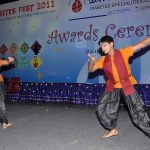
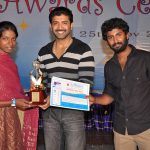
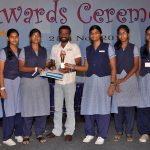
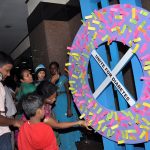
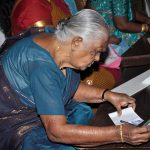
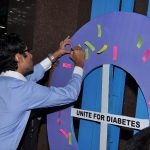
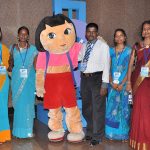
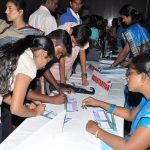
0 Comments